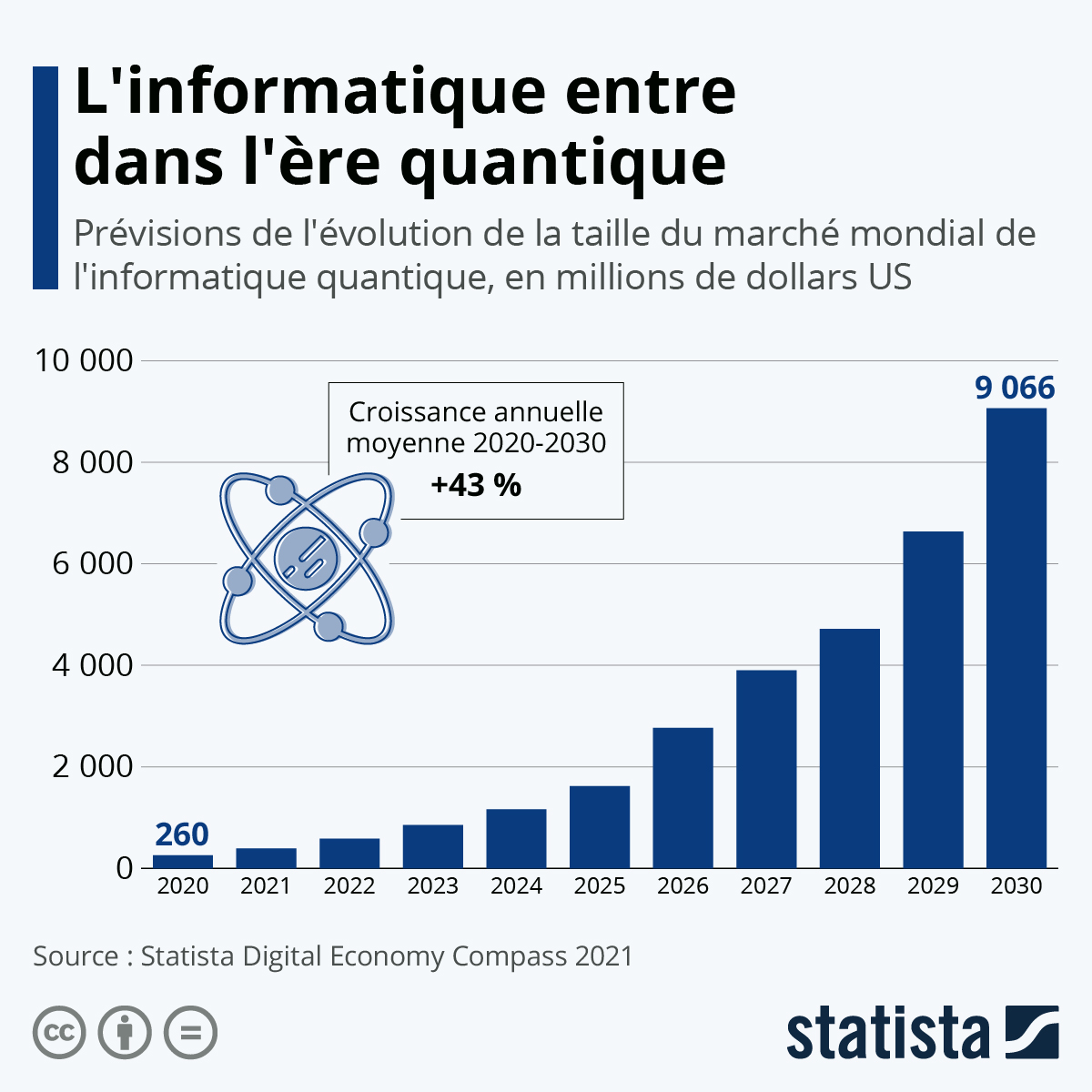Unveiling The Power Of Quantum Computing: A Game-Changer In The Digital Age
Editor's Notes: "Unveiling The Power Of Quantum Computing: A Game-Changer In The Digital Age" paper have published on [[date]]. Over the recent period, we have discovered the massive benefits of Unveiling The Power Of Quantum Computing: A Game-Changer In The Digital Age. That's why we decide to write this Unveiling The Power Of Quantum Computing: A Game-Changer In The Digital Age guide to help you make a right decision.
After analyzing, digging information, made the "Unveiling The Power Of Quantum Computing: A Game-Changer In The Digital Age" we put together this guide to help you make the most important decision.
| Key differences | Key takeways | |
|---|---|---|
| 1. | Quantum computers will be able to solve problems that are impossible for classical computers to solve. This will have a profound impact on a wide range of industries, including:
|
|
| 2. | It will be several years before quantum computers are widely available. However, there are already a number of companies and research institutions that are working on developing quantum computers. | |
| 3. | Implementing quantum computers will require a significant investment in research and development. In addition, it will be necessary to develop new software and algorithms that can take advantage of the unique capabilities of quantum computers. |
FAQs
Within Unveiling The Power Of Quantum Computing: A Game-Changer In The Digital Age, this FAQ section aims to address some common questions and misconceptions regarding the transformative technology of quantum computing.
Question 1: What exactly is quantum computing, and how does it differ from classical computing?
Quantum computing harnesses the principles of quantum mechanics to perform computations that are infeasible for classical computers. Utilizing quantum bits (qubits), quantum computers leverage superposition and entanglement to solve complex problems exponentially faster.
Question 2: What are the potential applications of quantum computing in various fields?
Quantum computing holds immense promise across multiple disciplines, including drug discovery, materials science, finance, and logistics. Its ability to solve complex problems efficiently can revolutionize drug development, optimize materials design, enhance financial modeling, and improve supply chain management.
Question 3: Is quantum computing ready for widespread adoption, or is it still in its early stages?
While quantum computing has made significant strides, it remains in its nascent stages. Currently, quantum computers are primarily used for research and development purposes. However, as the technology matures, it is anticipated to transition into practical applications.
Question 4: Is quantum computing a threat to existing cybersecurity measures?
Quantum computing poses both opportunities and challenges for cybersecurity. While it can enhance encryption algorithms, it can also break current encryption protocols. Quantum-resistant cryptography is being developed to mitigate these potential risks.
Question 5: What are the limitations and challenges associated with quantum computing?
Quantum computing faces several challenges, including the need for specialized hardware, complex software, and the maintenance of quantum coherence. Additionally, the development of robust error correction methods is a key area of research.
Question 6: How can organizations prepare for the impact of quantum computing?
Organizations should start exploring quantum computing's potential applications and implications. Investing in research, collaborating with experts, and educating employees can help them navigate the transformative effects of quantum computing.

ITRmanager : Le quotidien des utilisateurs de l'informatique en entreprise - Source itrmanager.com
In summary, quantum computing holds the potential to revolutionize various industries and address complex problems that are beyond the capabilities of classical computers. As the technology continues to advance, organizations should stay informed and prepare for its profound impact on the digital age.
To learn more, delve into the comprehensive article Unveiling The Power Of Quantum Computing: A Game-Changer In The Digital Age.
Tips for Leveraging Quantum Computing
The transformative power of quantum computing presents a host of opportunities for businesses and researchers. To maximize its potential, consider the following tips:
Tip 1: Identify Suitable Applications
Quantum computing excels in solving complex problems that classical computers find challenging. It can optimize financial models, accelerate drug discovery, and facilitate advanced materials research.
Tip 2: Explore Existing Tools and Platforms
Numerous cloud platforms and software development kits provide access to quantum computing resources. Utilize these tools to experiment with quantum algorithms and design efficient programs.
Tip 3: Collaborate with Experts
Engage with researchers, quantum computing companies, and industry experts. Their insights can guide your project development and ensure optimal implementation.
Tip 4: Consider Quantum-Inspired Algorithms
Even if direct access to quantum hardware is not available, quantum-inspired algorithms can improve classical computing capabilities. These algorithms can tackle problems in areas such as optimization and machine learning.
Tip 5: Stay Informed about Advancements
Quantum computing is rapidly evolving. Follow industry news, attend conferences, and engage with research communities to stay abreast of the latest developments and best practices.
By embracing these tips, businesses and researchers can harness the transformative power of quantum computing to unlock new possibilities and drive innovation in various fields.
Unveiling The Power Of Quantum Computing: A Game-Changer In The Digital Age
The advent of quantum computing has sparked significant excitement in the scientific and technological communities, promising the potential to revolutionize industries and redefine human capabilities. Unleashing the power of quantum computing involves understanding its intrinsic characteristics and multifaceted applications.
- Superposition: The ability for qubits to exist in multiple states simultaneously, enabling exponential computational power.
- Entanglement: The interconnectedness of qubits allows information to be processed in parallel, accelerating problem-solving.
- Quantum Algorithms: Specialized algorithms designed for quantum computers, solving complex problems intractable by classical methods.
- Quantum Simulation: Modeling and predicting behavior of complex systems beyond the scope of classical computing.
- Quantum Error Correction: Techniques to mitigate errors inherent in quantum systems, ensuring reliable computation.
- Practical Applications: Potential applications span diverse fields, including drug discovery, materials science, financial modeling, and cryptography.
The convergence of these key aspects enables quantum computing to transcend limitations of classical computing, opening new frontiers in scientific research, industrial innovation, and societal advancements. Understanding these characteristics empowers individuals and organizations to harness the transformational potential of quantum computing and drive the digital age forward.

quantum computing formula The state of quantum computing - Source futuresoftech.com
Unveiling The Power Of Quantum Computing: A Game-Changer In The Digital Age
Unveiling the potential of quantum computing will initiate a technological revolution, analogous to the advent of the internet. With groundbreaking capabilities like quantum superposition and entanglement, quantum computers will possess exponential processing power that is unmatched by traditional computers.

Intel Blazes New Trails For Quantum Computing With 'Tangle Lake': The - Source wccftech.com
This transformative technology holds the key to advancing drug discovery, enhancing material design, optimizing financial computations, and revolutionizing fields such as cryptography and artificial intelligence. Quantum computing has the potential to reshape industries and solve some of the world's most pressing challenges, including climate change, hunger, and disease.
As we continue to unravel the potential of quantum computing, international collaboration and ethical considerations become paramount. Governments, industries, and research institutions must work together to foster an environment that encourages innovation and addresses the societal and ethical implications of this powerful technology.
| Area of Impact | Quantum Computing's Potential |
| Drug Discovery | Accelerate the development of life-saving medications |
| Material Design | Create stronger, lighter, and more efficient materials |
| Financial Modeling | Simulate complex economic scenarios for better decision-making |
| Artificial Intelligence | Train and deploy AI models with unprecedented speed and accuracy |
Conclusion
The unveiling of quantum computing's power heralds a new era of technological advancement and human ingenuity. As we delve deeper into its potential, we must stay mindful of the challenges and ethical implications it presents.
Collaboration and responsible stewardship will be crucial in harnessing the transformative power of quantum computing for the betterment of society. By fostering an environment that encourages innovation and addresses societal concerns, we can unleash the full potential of this game-changing technology and shape a future that is both technologically advanced and ethically sound.